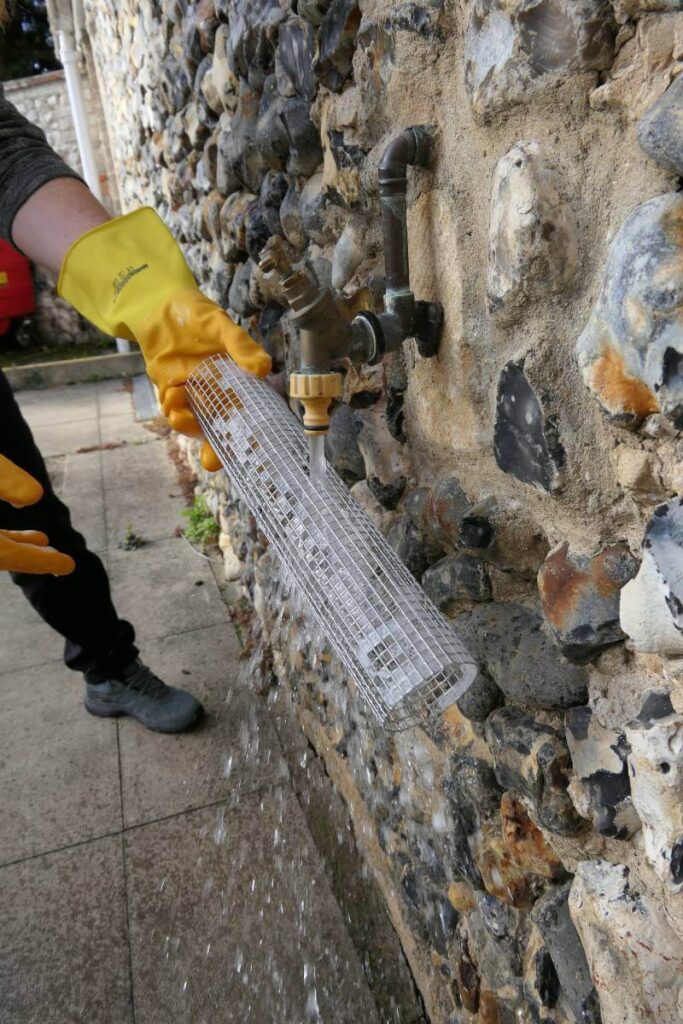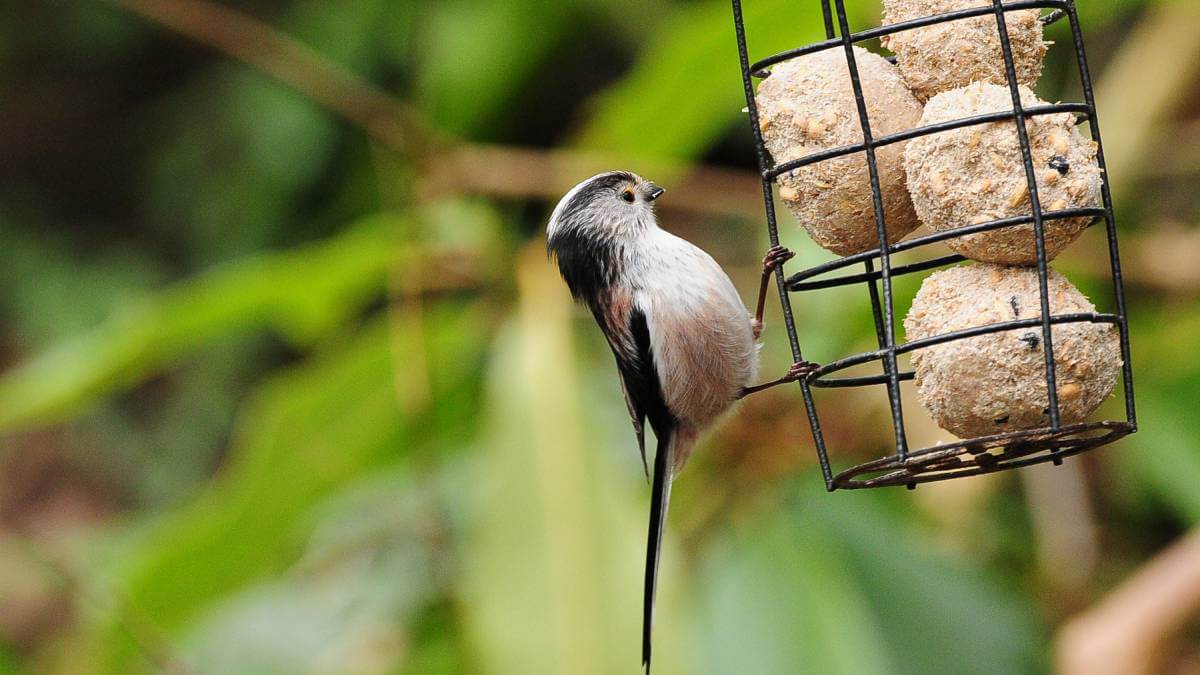Many wildlife lovers fill up their feeders with seeds, nuts and other goodies to attract as many birds as they can to their gardens.
But if the birds are slow to arrive, how long will your bird food keep when exposed to the elements? And what about all the sticky, decomposed debris that ends up at the bottom of the feeders?

Ecologist Gemma Golding warns: “If you’ve had a lot of birds feeding in one area, they poo and wee on and below the bird feeder. You’ve then got a lot of excrement and material that can spread disease.”
Here’s what you need to know about keeping bird feeders shipshape.
How often should I clean my feeder?
“We recommend that feeders are cleaned at least once a week, but more often is better,” says Rob Jaques of the British Trust for Ornithology (bto.org).
View this post on Instagram
“Some people have pairs of feeders, one is active while the other is being cleaned, though we understand that might not be practical for many people.”
Read: Citrus peel and bells: Tips to stop cats killing birds
How do I clean it?
Wash it in soapy water or in a weak bleach solution (5 per cent bleach to water), making sure all stale food is removed and feeders are rinsed and fully dried before being replaced, Mr Jaques advises.
“It is good to think of feeders like plates in a restaurant. We wouldn’t want to eat from a plate used by dozens of customers, so why should the birds?”

Helen Moffat, from the Royal Society for the Protection of Birds, adds: “We advise cleaning feeders outside and having some cleaning utensils you use only for this job. The same applies to bird baths, too.”
Eric Michels, of CJ Wildlife (birdfood.co.uk), adds: “Feeders should be air-dried before refilling to ensure seed doesn’t go damp and spoil, or attract bacteria. Specialist cleaning brushes are a handy tool that makes cleaning easier, allowing you to reach inside the tube and into corners, where it is difficult to get to.”
What diseases can be spread at feeders?
The disease that has had the largest impact is trichomonosis, Mr Jaques warns. This affects birds by swelling their throats, making it difficult for them to swallow. They then cough up seeds, which are picked up by different birds, spreading the disease.
Ms Golding suggests that if you have space, it might be worth moving feeders regularly to different parts of the garden, reducing the high concentration of birds in one space.
Which types of food tend to go off more quickly?

“Most food is good outside for a few days, but hot or rainy weather can cause it to spoil more quickly, especially things such as fat balls,” says Ms Moffat. “If you are putting out leftovers, such as cheese and fruit, make sure it’s eaten whilst it’s still fresh, or remove it if not.”
Mr Jaques adds: “All foods are capable of going off, because of this we recommend only a day’s worth of food is put out at a time. However, peanuts, when stored incorrectly, seem to go mouldy very quickly. These moulds produce aflatoxins, which can be very dangerous for birds, wildlife, and even people.
“The weather will have an impact. Warm, wet weather is ideal for diseases and mould, whereas dry and cool food will last a while. However, diseases can be spread at any time, so the same hygiene practices should be practised throughout the year.”
Should you ditch untouched bird food after a particular time?
View this post on Instagram
Ms Moffat says: “We’d advise not putting full feeders out until you’ve gauged how much appetite there is. If you have just started feeding birds, it will take a while for them to find your feeders – or if you’ve changed their location, as we advise doing every few weeks.
“Just put a little feed in there and dispose of this if it doesn’t get eaten each week, possibly sooner if it is hot or wet weather, which will spoil the food more quickly, especially food such as fat balls.”
Read: How to control aggressive noisy miners in your garden
How do you know if the bird food has gone off?
View this post on Instagram
“Firstly, simply check it visually. If it is clumped together, there are insects inside, or it appears to be sprouting, you should get rid of it, clean your feeder and replace with a fresh batch,” advises Mr Michels.
“Some bird seeds have a strong odour when they become unsafe to eat or overly damp, particularly those with high natural oil content. If your bird feed smells rancid, musty or just not right, throw it out.
“Finally, if it’s been a few days since you last saw a bird on your feeder, this could be a sign that it is not fresh. Try cleaning and refilling to see if birds come back.”
Read: Why we should learn to love wasps and other garden pests
Are some bird feeders easier to clean?

“Yes – feeders should be able to be fully taken apart, so each part can be reached and cleaned properly. There is a trend for people to buy really long feeders, but these are often difficult to clean, and food is more likely to spoil. So, unless your garden is particularly busy with birds, small feeders are better,” says Mr Jaques.
Do you have a bird feeder in your garden? Let us know in the comments section below.
– With PA

